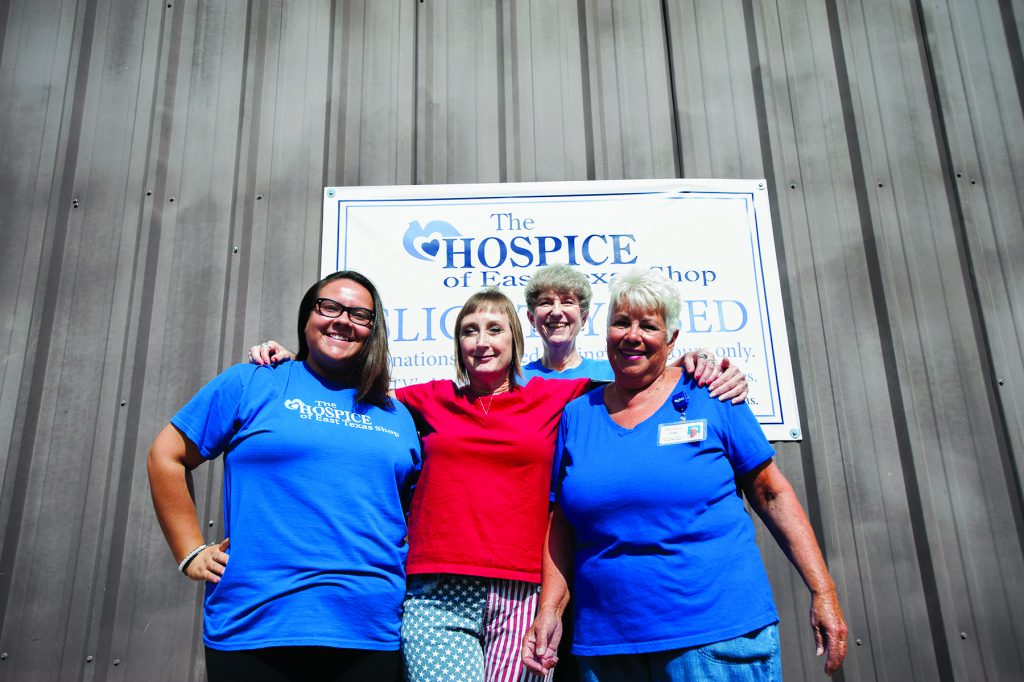
Deborah Scroggins describes the last year as a roller coaster ride of emotions. “I feel like I’ve been squeezing the handles so hard that my whole body was numb,” she said.
Deborah has lived in Nacogdoches most of her life. She was working as a Certified Nurse Assistant when she began suffering from severe weakness and depression. It was a strange combination of physical and emotional symptoms. She was both sad and anxious and had trouble staying focused. But she also felt bad physically. She felt so weak and stiff it took a lot of time and effort to simply bathe and dress.
“I thought my life was over,” she said. In fact, she began to think that things might be easier if it were.
That’s when she came to Burke.
Her elderly father brought her to Burke’s Mental Health Emergency Center during the July 4th weekend last year, worried about her physical and mental wellbeing.
“I didn’t know what it could be, and it was terrifying,” she said. “But the Burke staff now tells me that they knew something neurological was going on the minute they saw me.”
They were right. After her initial screening at Burke, Deborah was referred to a neurologist that eventually identified her physical condition: Parkinson’s disease. That explained her weakness and pain, and she is now on medication that has made her physically stronger.
“Now I can drive and walk. I have some stiffness, but I’m completely able and mobile. It has had a huge impact on my mental health, too.”
Deborah isn’t alone. Physical and mental health issues can combine to create complex symptoms that are hard to diagnose. In addition to being frustrating and painful for the patient, these symptoms can lead to misdiagnoses and courses of treatment that mask symptoms but do not address the underlying problem.
Further, people with mental illness have higher rates of co-occurring chronic medical conditions and, on average, live shorter lives. Identifying the separate issues is critically important for long-term health.
In Deborah’s case, the physical pain caused by her Parkinson’s symptoms significantly reduced her ability to move, dress herself, and complete the basic necessities of daily life. That, in turn, fed her anxiety and depression.
“It’s like they figured out the combination to my lock,” she said. “And now that I know what’s going on, I’m able to treat the individual pieces. Looking back, it’s clear that my physical pain was adding to or causing my mental illness. But when you’re going through it, it’s all just one big, jumbled ball. You can’t figure it out yourself.”
Getting a handle on her physical and mental health has allowed her to volunteer at the Hospice of East Texas’ resale shop in Nacogdoches. “I not only get to be productive, but I get to help others in the community.”
Her experience has also helped her think differently about mental illness. “I know there’s no shame in my mental illness,” she said. “I know I need to talk about it if I want people to understand it or I want to get better. The people around me need to know. Any chance I have to help the community know how to get help…sign me up.”
“I got incredible care and attention at Burke,” she said. “I have regular checkup meetings there for counseling and to make sure my medication is working. But I stop by and say hello even when I don’t have an appointment. They were so helpful to me that it feels like visiting family.”
Published in the Nacogdoches Daily Sentinel on July 3, 2016, by Kinnie Reina as part of Burke’s REAL campaign, helping East Texans “Get REAL” about mental illness.




